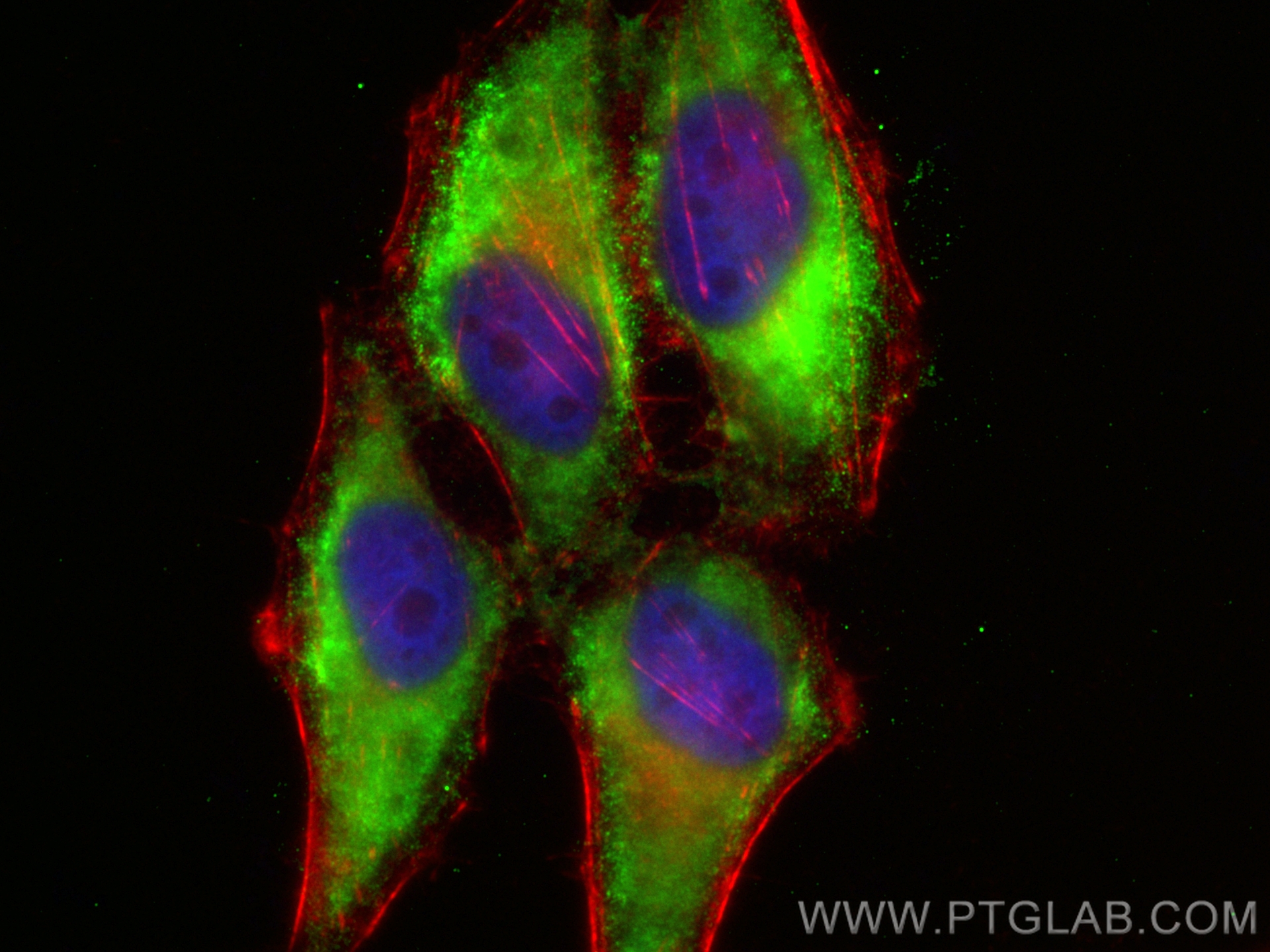验证数据展示
经过测试的应用
| Positive IF/ICC detected in | HepG2 cells |
推荐稀释比
| 应用 | 推荐稀释比 |
|---|---|
| Immunofluorescence (IF)/ICC | IF/ICC : 1:50-1:500 |
| It is recommended that this reagent should be titrated in each testing system to obtain optimal results. | |
| Sample-dependent, Check data in validation data gallery. | |
产品信息
CL488-14627 targets HPS4 in IF/ICC applications and shows reactivity with human samples.
| 经测试应用 | IF/ICC Application Description |
| 经测试反应性 | human |
| 免疫原 | HPS4 fusion protein Ag6202 种属同源性预测 |
| 宿主/亚型 | Rabbit / IgG |
| 抗体类别 | Polyclonal |
| 产品类型 | Antibody |
| 全称 | Hermansky-Pudlak syndrome 4 |
| 别名 | bK1048E9.4, bK1048E9.5, Hermansky Pudlak syndrome 4, HPS4, KIAA1667, LE, Light ear protein homolog |
| 计算分子量 | 77 kDa |
| 观测分子量 | 70-90 kDa |
| GenBank蛋白编号 | BC065030 |
| 基因名称 | HPS4 |
| Gene ID (NCBI) | 89781 |
| RRID | AB_3672596 |
| 偶联类型 | CoraLite® Plus 488 Fluorescent Dye |
| 最大激发/发射波长 | 493 nm / 522 nm |
| 形式 | Liquid |
| 纯化方式 | Antigen affinity purification |
| UNIPROT ID | Q9NQG7 |
| 储存缓冲液 | PBS with 50% glycerol, 0.05% Proclin300, 0.5% BSA , pH 7.3 |
| 储存条件 | Store at -20°C. Avoid exposure to light. Stable for one year after shipment. Aliquoting is unnecessary for -20oC storage. |
背景介绍
Hermansky-Pudlak syndrome (HPS) is a genetic disease characterized by oculocutaneous albinism, bleeding due to platelet storage pool deficiency, and lysosomal storage defects. This syndrome results from defects of diverse cytoplasmic organelles including melanosomes, platelet dense granules and lysosomes. HPS1 and HPS4 are the most frequently mutated genes associated with HPS in humans. Both of HPS1 and HPS4 are components of two complexes involved in biogenesis of melanosome and lysosome-related organelles: BLOC-3 and BLOC-4. HPS4 is supposed to interact with HPS1 and stabilize HPS1. The human HPS4 migrates at about 90 kDa on SDS-PAGE, versus its predicated molecular mass of 77 kDa.
实验方案
| Product Specific Protocols | |
|---|---|
| IF protocol for CL Plus 488 HPS4 antibody CL488-14627 | Download protocol |
| Standard Protocols | |
|---|---|
| Click here to view our Standard Protocols |
